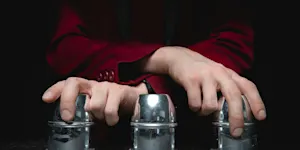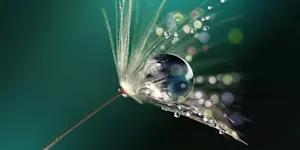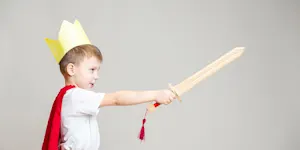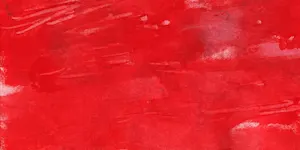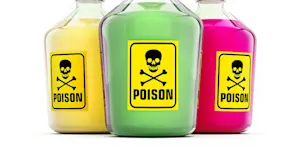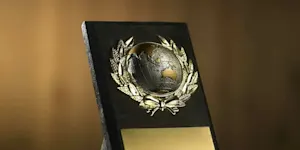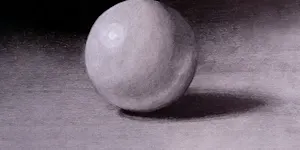What Makes This Word Tick
"Badinage" is the kind of word that tickles the tongue and the brain. It's all about light, playful banter — the sort of witty, good-natured teasing you might engage in over a casual coffee with friends. Think of it as verbal tennis, where the volleying back and forth is more about the joy of the game than the score.
If Badinage Were a Person…
If badinage incarnated as a person, it would be that charming friend who always has a clever comeback or a snappy retort up their sleeve. Picture someone like a younger George Clooney or a wittier Dorothy Parker — always ready with a quip and a grin.
How This Word Has Changed Over Time
Badinage hasn't changed much over time; it's consistently represented playful teasing. It stems from the French "badiner," meaning to jest or play. While French humor might not always translate perfectly, this word has musically tiptoed into English without losing its graceful, jesting essence.
Old Sayings and Proverbs That Use Badinage
Surprisingly, there aren't many timeworn sayings featuring "badinage" — perhaps because the concept itself is the saying, a reminder to keep communication light and joyful. However, the spirit of badinage is captured in expressions like "taking the mickey" or "joshing," both of which highlight gentle teasing.
Surprising Facts About Badinage
While it sounds sophisticated, "badinage" is about as highbrow as poking gentle fun about someone’s choice in socks. It was popularized in English during the 17th century when French culture was all the rage, along with fancy wigs and fine lace.
Out and About With This Word
You might encounter badinage at a lively dinner party or among colleagues who know each other well enough to jest without offense. It's not for formal occasions or somber settings where the mood refuses to lift a playful eyebrow.
Pop Culture Moments Where Badinage Was Used
Though "badinage" itself might not graces headlines often, the essence of it is prevalent in sitcoms like "Friends" or "Frasier." These shows thrive on characters engaging in witty repartee that keeps audiences laughing and coming back for more.
The Word in Literature
"Badinage" comes alive in classic novels that feature quick-witted characters. Jane Austen’s works, filled with social critique and irony, are fertile ground for such playful verbal exchanges, though the actual word may not appear directly.
Moments in History with Badinage
Imagine King Louis XIV’s court where badinage likely flowed as freely as the elaborate coiffures towered. It’s easy to picture such playful banter amidst the pomp and circumstance, where wit was a prized form of social currency.
This Word Around the World
While "badinage" retains its French roots across languages, each country has its playful banter style. In Italy, for instance, you'd find "pesare" (meaning to tease lightly), while Germans might use "Spaßmachen," highlighting humor’s universal joy.
Where Does It Come From?
The word finds its origins in the French "badiner" — to jest or trifle. It made its way into English during the 17th century, riding the coattails of the cultural love affair with all things French.
How People Misuse This Word
Misuse usually revolves around thinking "badinage" means straight-up comedy or roasting. It’s much softer around the edges, a gentle, amiable jab rather than a sharp poke.
Words It’s Often Confused With
Banter: While similar, banter can sometimes be more direct and hearty.
Teasing: This can border on mean-spirited, whereas badinage rarely has a sting.
Sarcasm: Often carries an edge, missing the light touch of badinage.
Additional Synonyms and Antonyms
Synonyms for badinage include "raillery," "chaffing," and "persiflage." Antonyms would be "seriousness," "solemnity," or "gravity."
Want to Try It Out in a Sentence?
"Amidst the hustle of the bustling café, their badinage wove a tapestry of laughter and lightness, a buoyant contrast to the world's rush outside."




